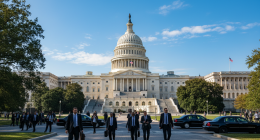New Low-Cost Packages Approved
Boosting Consumer Access
On July 18, 2025, Thailand’s National Broadcasting and Telecommunications Commission (NBTC) approved a proposal allowing mobile operators to introduce call packages priced below 240 baht per month. This move aims to make mobile services more affordable, addressing the current market average of 240 baht for basic plans. The decision marks a significant step toward enhancing accessibility for consumers across Thailand’s urban and rural areas.
Simplified Service Offerings
Voice and Internet Focus
The NBTC’s proposal specifies that these budget-friendly packages will include only voice calls and internet services, excluding SMS and MMS to keep costs low. This streamlined approach caters to the growing demand for data-driven communication, reflecting shifts in consumer behavior. By prioritizing essential services, the regulator seeks to ensure that even low-income users can stay connected in Thailand’s increasingly digital economy.
Overhauling Tariff Structures
Revising 2020 Regulations
The approval is part of a broader overhaul of Thailand’s mobile tariff framework, unchanged since 2020 when the market had three major operators. Now dominated by two providers, alongside the smaller state-owned National Telecom, the industry requires updated regulations to reflect current dynamics. The NBTC’s revisions aim to adapt to evolving operational costs and technological advancements, fostering a more competitive telecom landscape.
Promoting Market Competition
Benefits for Consumers
Trairat Viriyasirikul, acting secretary-general of the NBTC, emphasized that the new rules are designed to spur competition among mobile operators. By enabling lower-priced plans, the regulator hopes to drive innovation and improve service quality, ultimately benefiting consumers with better options. Increased competition could lead to enhanced network coverage and faster internet speeds, critical for Thailand’s digital transformation goals.
Adapting to Market Changes
Reflecting Operational Realities
The revised tariff structure accounts for the shifting telecom market, including rising infrastructure costs and the dominance of data-driven services. With only two major players, the NBTC aims to prevent monopolistic practices and ensure fair pricing. The inclusion of low-cost packages is expected to attract new subscribers, particularly in underserved regions, supporting Thailand’s push for universal connectivity by 2030.
Broader Economic Impact
Supporting Digital Growth
The introduction of affordable mobile plans aligns with Thailand’s ambition to strengthen its digital economy, where mobile penetration exceeds 90%. By lowering barriers to access, the NBTC’s initiative could boost e-commerce, remote work, and digital education, particularly in rural areas. As operators roll out these budget plans, the move is likely to enhance consumer confidence and stimulate growth in Thailand’s telecom sector.









